写真1枚目を観て分かるように、
明らかに機動隊が
差別する側に
背中を向けているのが
分かります。
「背中を預ける」
という言葉が
ある通り、
機動隊の人たちは、
在特会を
味方と考えているのでしょうか。
僕は、
公安警察が
思考停止に陥っている証拠と思います。
警察としては、
とりあえず、
権力に近そうな者が仲間
という立ち位置です。
しかし、
恐るべきは、
ぱっと見て
「こちらが権力に近い」
と判断させる
条件反射の域に達した
洗脳の効果です。
■資料
「Nationalism rearing ugly head with greater frequency」
Rightwingers think nothing of making public death threats
The Japan Times NEWS (MAY 23, 2013)
BY TOMOHIRO OSAKI
☆ 記事URL:http://www.japantimes.co.jp/news/2013/05/23/national/nationalism-rearing-ugly-head-with-greater-frequency/#.UaZYK9L8Efi

Angry protesters took to the streets Sunday in Tokyo’s Shin-Okubo district, home to many Korean shops and restaurants, describing the Korean residents there as “cockroaches” and calling for their immediate “extermination.”
It was only the latest in a series of anti-Korean rallies in the neighborhood that have grown more intense in the past few months.
Often spearheaded by the rightwing group Zainichi Tokken wo Yurusanai Shimin no Kai (Zaitokukai), which translates literally as a citizens’ group that won’t tolerate special privileges for Korean and Chinese residents in Japan, these protests have raised eyebrows, especially for their blatant racism and outright death threats.
Some experts say this trend reflects growing public anxiety about the rise of China and South Korea at a time when, despite the recent stock rise and weakening yen, regular people still feel mired in Japan’s economic malaise.
Organized by a different nationalist group, Sunday’s demonstration appeared to have been carefully orchestrated and few literal death threats were heard. Still, the bellicose rhetoric remained unabated, with some saying the Korean residents should be “Holocausted.” The Holocaust was the mass slaughter of European civilians, especially Jews, by the Nazis during World War II.
A 25-year-old businessman from Tokyo who said he is a regular participant in such rallies said his repugnance toward Koreans emerged after finding what he described as the “ugly truth” two years ago while surfing the Internet.
“Korean residents in Japan are often using a Japanese alias, so even though they commit a crime, their real name won’t be made public,” the man, who asked that his name not be used, said, referring to the main theme of Sunday’s protest.
Though at first he balked at chanting the barrage of hateful remarks, he says he has now grown accustomed to it.
“Traditionally, Japanese people have valued politeness,” the young man said. “But look what these Korean people have done all these years to castigate Japan. So I think it’s just that Japanese people have finally learned to unleash their repressed anger.”
Another regular participant, a 36-year-old man who declined to give his name, justified the protests as an “appropriate way to defend Japan’s national interests,” and demanded “the media disclose real names of Korean criminals, otherwise Japanese people will be made a scapegoat for what they did.”
Verbal onslaughts at the street level have long existed, but their frequency has “drastically increased in the past three months,” said a 19-year-old Korean university student in Shin-Okubo.
Akira Maeda, a law professor at Tokyo Zokei University, said participants of such rallies are feeling increasingly alarmed by the rise of China and South Korea. This sense of crisis, or anxiety, leads them to play up their own nation’s perceived superiority, he explained.
The territorial disputes that have recently flared up have fueled a burst of nationalist sentiment, Maeda said, with some people growing dismayed that the Japanese are being “stripped of their rights.”
Zaitokukai leader Makoto Sakurai and other nationalists have argued that Korean residents of Japan receive preferential treatment not granted to other foreigners. This includes being granted the status of permanent residence and allowed to go by a Japanese “alias.”
They say it’s ungrateful of the Koreans to take full advantage of these benefits and yet complain about Japan’s wartime aggression. Such “privileges” are glaring in the face of Japan’s current gloom, as seen in the high suicide rate and lackluster economic growth, they argue.
The rise in nationalism also can be seen on the Internet.
According to data compiled by the office of Kan Suzuki, an Upper House lawmaker from the Democratic Party of Japan, using Tribal Media House Inc.’s Internet search tool, online use of xenophobic language has been spiking in the past few months.
Among terms subject to its survey was “zainichi” (foreign residents of Japan), which, beyond its original meaning, is now being used by rightwing netizens as a derogative reference to Koreans residing in Japan. Daily use of the word zainichi on the Internet, which stood at 7,500 on Dec. 31, rocketed to 25,000 on April 1, according to Suzuki’s office.

Prime Minister Shinzo Abe has voiced concern over a further spread of race-based invectives, saying it runs counter to Japanese people’s traditional pursuit of tolerance and harmony with others. Justice Minister Sadakazu Tanigaki has meanwhile condemned the repeated use of hate speech in recent anti-Korean demonstrations, saying it is “very worrying.”
Lawyer Yasuko Morooka pointed out during an antiracism symposium earlier this month that free speech in Japan tends to be mistaken as having the right to say anything, including hate speech.
“If left unaddressed, hate speech will only amplify inter-ethnic enmity and discrimination, and trigger physical violence against minorities and eventually genocide, as well. A war might even break out, leading to the destruction of our society,” Morooka said.
Maeda of Tokyo Zokei University said the term “hate speech” carries a somewhat innocuous connotation. Compared with “hate crime,” “hate speech” tends to be taken less seriously, he said. The downplayed concern has encouraged ultranationalists such as Zaitokukai leader Sakurai to make hate-filled speeches and somehow believe that they are causing no tangible “harm.”
“They say all they did was just vent their anger,” Maeda said.
He also commented on the virtual impunity with which these nationalists have been allowed to call for the obliteration of Koreans in Japan, and that it’s time for officials to act.
“The government should create a domestic law that unequivocally bans people from inciting discrimination,” Maeda said.
But he also said such a law should let violators off with no penalty, as that would make its enactment more viable, given the Japanese public’s preoccupation with free speech. Still, Maeda believes, the law would deliver an important message.
“The existence of such a law would give the state a good reason to crack down on such demonstrations and convince the Japanese public they shouldn’t do the same.”
明らかに機動隊が
差別する側に
背中を向けているのが
分かります。
「背中を預ける」
という言葉が
ある通り、
機動隊の人たちは、
在特会を
味方と考えているのでしょうか。
僕は、
公安警察が
思考停止に陥っている証拠と思います。
警察としては、
とりあえず、
権力に近そうな者が仲間
という立ち位置です。
しかし、
恐るべきは、
ぱっと見て
「こちらが権力に近い」
と判断させる
条件反射の域に達した
洗脳の効果です。
■資料
「Nationalism rearing ugly head with greater frequency」
Rightwingers think nothing of making public death threats
The Japan Times NEWS (MAY 23, 2013)
BY TOMOHIRO OSAKI
☆ 記事URL:http://www.japantimes.co.jp/news/2013/05/23/national/nationalism-rearing-ugly-head-with-greater-frequency/#.UaZYK9L8Efi

Angry protesters took to the streets Sunday in Tokyo’s Shin-Okubo district, home to many Korean shops and restaurants, describing the Korean residents there as “cockroaches” and calling for their immediate “extermination.”
It was only the latest in a series of anti-Korean rallies in the neighborhood that have grown more intense in the past few months.
Often spearheaded by the rightwing group Zainichi Tokken wo Yurusanai Shimin no Kai (Zaitokukai), which translates literally as a citizens’ group that won’t tolerate special privileges for Korean and Chinese residents in Japan, these protests have raised eyebrows, especially for their blatant racism and outright death threats.
Some experts say this trend reflects growing public anxiety about the rise of China and South Korea at a time when, despite the recent stock rise and weakening yen, regular people still feel mired in Japan’s economic malaise.
Organized by a different nationalist group, Sunday’s demonstration appeared to have been carefully orchestrated and few literal death threats were heard. Still, the bellicose rhetoric remained unabated, with some saying the Korean residents should be “Holocausted.” The Holocaust was the mass slaughter of European civilians, especially Jews, by the Nazis during World War II.
A 25-year-old businessman from Tokyo who said he is a regular participant in such rallies said his repugnance toward Koreans emerged after finding what he described as the “ugly truth” two years ago while surfing the Internet.
“Korean residents in Japan are often using a Japanese alias, so even though they commit a crime, their real name won’t be made public,” the man, who asked that his name not be used, said, referring to the main theme of Sunday’s protest.
Though at first he balked at chanting the barrage of hateful remarks, he says he has now grown accustomed to it.
“Traditionally, Japanese people have valued politeness,” the young man said. “But look what these Korean people have done all these years to castigate Japan. So I think it’s just that Japanese people have finally learned to unleash their repressed anger.”
Another regular participant, a 36-year-old man who declined to give his name, justified the protests as an “appropriate way to defend Japan’s national interests,” and demanded “the media disclose real names of Korean criminals, otherwise Japanese people will be made a scapegoat for what they did.”
Verbal onslaughts at the street level have long existed, but their frequency has “drastically increased in the past three months,” said a 19-year-old Korean university student in Shin-Okubo.
Akira Maeda, a law professor at Tokyo Zokei University, said participants of such rallies are feeling increasingly alarmed by the rise of China and South Korea. This sense of crisis, or anxiety, leads them to play up their own nation’s perceived superiority, he explained.
The territorial disputes that have recently flared up have fueled a burst of nationalist sentiment, Maeda said, with some people growing dismayed that the Japanese are being “stripped of their rights.”
Zaitokukai leader Makoto Sakurai and other nationalists have argued that Korean residents of Japan receive preferential treatment not granted to other foreigners. This includes being granted the status of permanent residence and allowed to go by a Japanese “alias.”
They say it’s ungrateful of the Koreans to take full advantage of these benefits and yet complain about Japan’s wartime aggression. Such “privileges” are glaring in the face of Japan’s current gloom, as seen in the high suicide rate and lackluster economic growth, they argue.
The rise in nationalism also can be seen on the Internet.
According to data compiled by the office of Kan Suzuki, an Upper House lawmaker from the Democratic Party of Japan, using Tribal Media House Inc.’s Internet search tool, online use of xenophobic language has been spiking in the past few months.
Among terms subject to its survey was “zainichi” (foreign residents of Japan), which, beyond its original meaning, is now being used by rightwing netizens as a derogative reference to Koreans residing in Japan. Daily use of the word zainichi on the Internet, which stood at 7,500 on Dec. 31, rocketed to 25,000 on April 1, according to Suzuki’s office.

Prime Minister Shinzo Abe has voiced concern over a further spread of race-based invectives, saying it runs counter to Japanese people’s traditional pursuit of tolerance and harmony with others. Justice Minister Sadakazu Tanigaki has meanwhile condemned the repeated use of hate speech in recent anti-Korean demonstrations, saying it is “very worrying.”
Lawyer Yasuko Morooka pointed out during an antiracism symposium earlier this month that free speech in Japan tends to be mistaken as having the right to say anything, including hate speech.
“If left unaddressed, hate speech will only amplify inter-ethnic enmity and discrimination, and trigger physical violence against minorities and eventually genocide, as well. A war might even break out, leading to the destruction of our society,” Morooka said.
Maeda of Tokyo Zokei University said the term “hate speech” carries a somewhat innocuous connotation. Compared with “hate crime,” “hate speech” tends to be taken less seriously, he said. The downplayed concern has encouraged ultranationalists such as Zaitokukai leader Sakurai to make hate-filled speeches and somehow believe that they are causing no tangible “harm.”
“They say all they did was just vent their anger,” Maeda said.
He also commented on the virtual impunity with which these nationalists have been allowed to call for the obliteration of Koreans in Japan, and that it’s time for officials to act.
“The government should create a domestic law that unequivocally bans people from inciting discrimination,” Maeda said.
But he also said such a law should let violators off with no penalty, as that would make its enactment more viable, given the Japanese public’s preoccupation with free speech. Still, Maeda believes, the law would deliver an important message.
“The existence of such a law would give the state a good reason to crack down on such demonstrations and convince the Japanese public they shouldn’t do the same.”










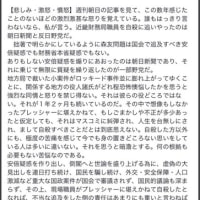
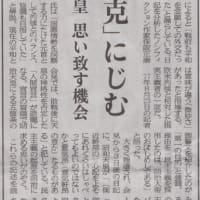
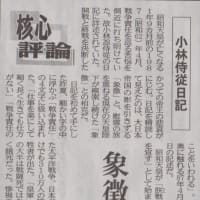
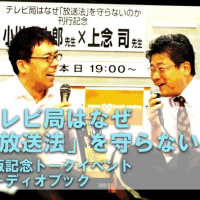
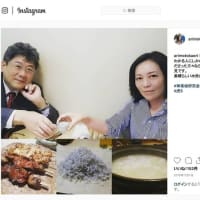
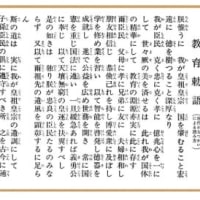



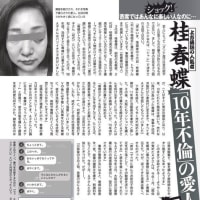
※コメント投稿者のブログIDはブログ作成者のみに通知されます